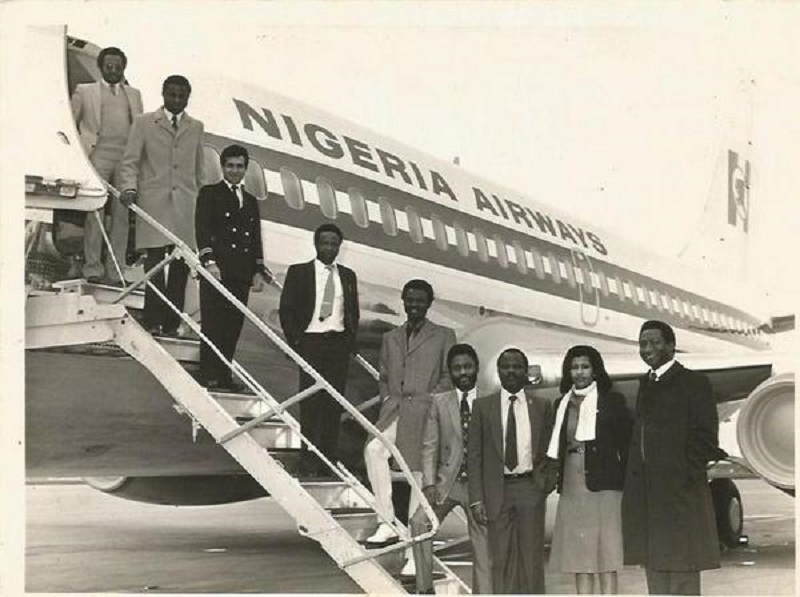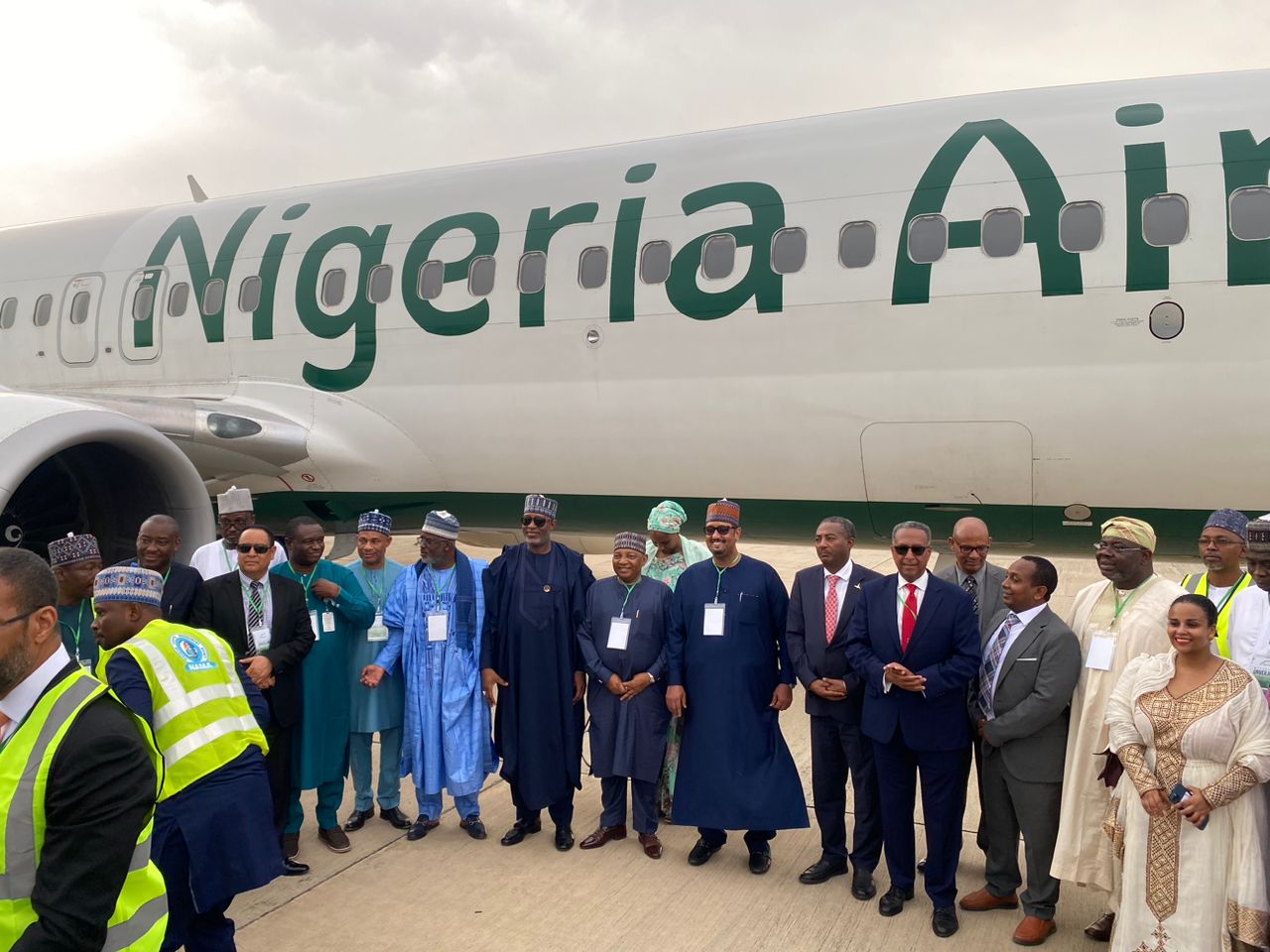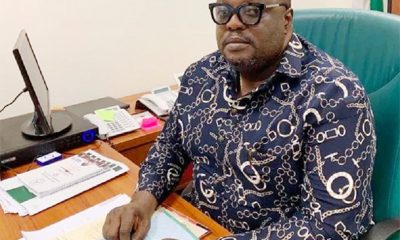Economy
FG to List Nigeria Air on Stock Exchange, Targets IPO in 2019
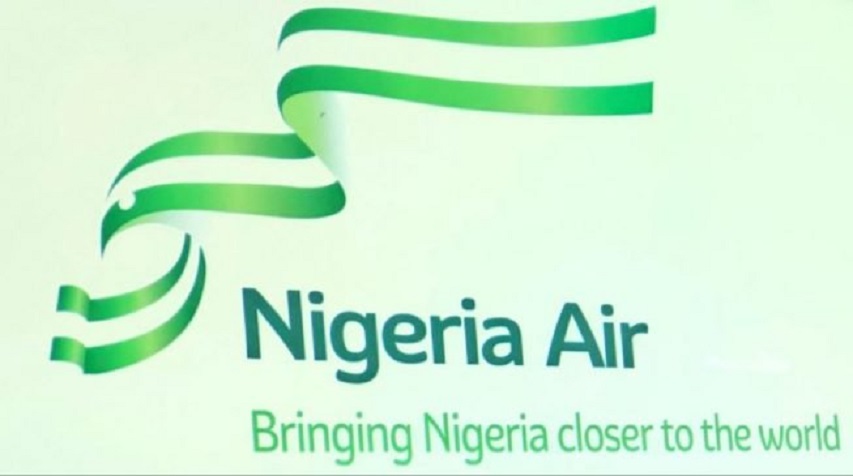
By Dipo Olowookere
More details are beginning to emerge on the newly launched national carrier for the nation, Nigeria Air.
According to reports, federal government, which announced having five percent stake in the new company, Nigeria Air Limited, said it would run the firm for one year before listing the shares through an Initial Public Offering (IPO).
Nigeria Air is expected to finally begin operations by December 2018 after obtaining at least five airplanes of the 30 it plans to have.
It was earlier disclosed by the Minister of State for Aviation, Mr Hida Sirika, that about $300 million would be needed to operate the national carrier.
“At start up, government will own majority equity in Nigeria Air Limited Joint Venture company that would be very similar to Nigeria LNG Limited. Nigeria LNG Limited is a huge JV success that is private sector managed so will Nigeria Air Limited.
“After one year of operations, government will through an IPO divest her equity for purchase by Nigerians subject to approval of the Securities and Exchange Commission (SEC).
“Government will then retain only five percent equity. The rest of 95 percent equity of Nigeria Air Limited will then be owned by the strategic equity investor and the general public.
“Majority ownership must however remain with Nigerians so that the national carrier can benefit from BASA and other bilateral agreements which require local beneficial ownership as a condition precedent.
“Management of the national carrier will be concessional to the strategic equity investor with no step in rights and management control by government. Signed up acceptance and approval of the management concession agreement will be a condition precedent for the IPO,” the Ministry of Aviation was quoted as saying.
It was disclosed that
He said the project is not shrouded in any secrecy affirming “There is no secrecy. The entire process is guided by the infrastructure concession regulatory commission guidelines/regulations.
Speaking on the $300 million needed to fund Nigeria Air, it was clarified that, “Government is not funding the entire project. It’s just providing start-up capital in the form of an upfront grant/viability gap funding.
“Once the strategic equity investor is in place, they will be expected to build on the initial investment made.”
It was further stated that, “$8 million represents startup capital for offices etc required for takeoff. But $300 million is the entire airline cash flow funding requirements (aircraft, operations and working capital) for three years (2018, 2019 and 2020).
“This funding can be in the form of equity or debt. The financial model estimates cash flow requirements as follows 2018 ($55 million – $8 million is included here), 2019 ($100 million) and 2020 ($145 million).
“In order to ensure take-off of the airline in 2018, the government will provide $55 million upfront grant/viability gap funding to finance startup capital and pay commitment fees for aircraft to be leased for initial operations and deposit for new aircraft whose delivery will begin in 2021.”
Furthermore, it was emphasised that because it’s a PPP, it has three stages – the project development stage, procurement stage and implementation stage. The project development stage was just concluded with the approval of the Outline Business Case, which the ICRC issued a certificate of compliance.
“Once the process gets to the PPP procurement stage, there will be an RFQ, Information Memorandum and RFP bidding process which will be made public, competitive and transparent. It is only after the PPP procurement process that the strategic equity investor will be known.
“At that stage the JV partners will be government and the strategic equity partner. Government’s equity share held in trust for Nigerians will be devolved to Nigerians via an IPO.
“The government will retain only 5% equity, the list of shareholders then will be available to SEC and the Nigerian Stock Exchange. At that point Nigeria Air Ltd becomes a public company subject to SEC, NSE and relevant CAMA rules for public companies.
“All PPP procurement and ownership moves will be made public. Signed up acceptance and approval of the management concession agreement will be a condition precedent for the IPO.”
Economy
Nigerian Stocks Further Lose 0.38% as Cautious Trading Persists
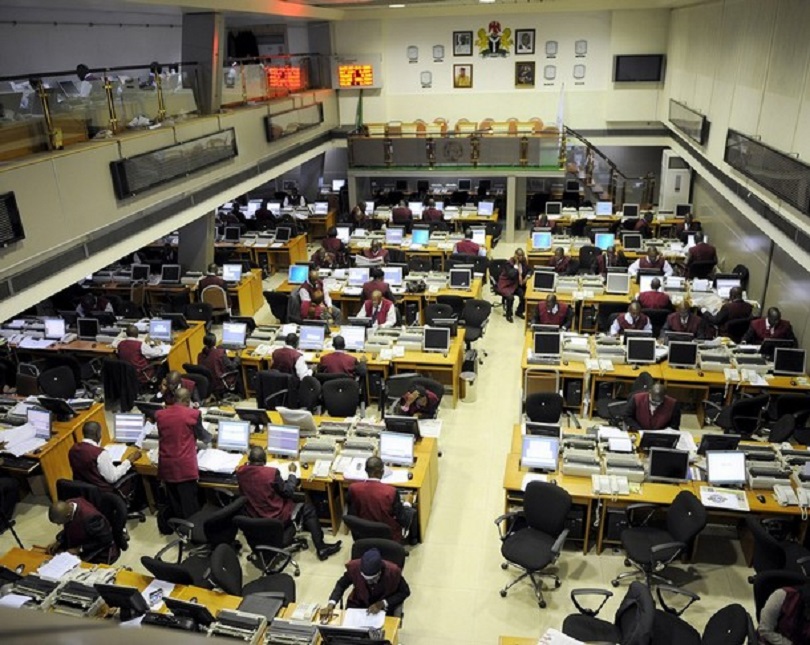
By Dipo Olowookere
The absence of a positive trigger left Nigerian stocks 0.38 per cent deeper in the bears’ territory on Friday, as investors embarked on cautious trading.
Two of the five major sectors tracked by Business Post finished in red on the last trading session of this week, with the industrial goods down by 2.44 per cent, and the energy down by 0.26 per cent due to profit-taking.
However, bargain-hunting raised the insurance sector by 1.52 per cent, the banking index increased by 0.79 per cent, and the consumer goods sector expanded by 0.28 per cent.
When the closing gong was struck yesterday, the All-Share Index (ASI) of the Nigerian Exchange (NGX) Limited crashed by 741.04 points to 192,826.77 points from 193,567.81 points, and the market capitalisation lost N476 billion to close at N123.763 trillion compared with the previous day’s N124.239 trillion.
According to data from Customs Street, Mecure gave up 9.97 per cent to trade at N75.85, Meyer depreciated by 9.90 per cent to N18.65, DAAR Communications crumbled by 9.83 per cent to N2.11, Champion Breweries staggered by 6.49 per cent to N18.00, and Dangote Cement crashed by 6.09 per cent to N779.00.
Conversely, Sovereign Trust Insurance gained 9.95 per cent to settle at N2.21, RT Briscoe improved by 9.93 per cent to N12.51, NGX Group expanded by 9.78 per cent to N124.00, Ellah Lakes surged by 9.70 per cent to N13.00, and Omatek chalked up 9.70 per cent to sell for N2.60.
A total of 44 shares finished on the gainers’ chart during the session, while 25 shares ended on the losers’ table, representing a positive market breadth index and strong investor sentiment.
The activity chart showed that 823.8 million stocks valued at N34.8 billion exchanged hands in 63,759 deals during the session versus the 868.5 million stocks worth N31.5 billion traded in 69,310 deals on Thursday.
This indicated that the value of transactions increased by 10.48 per cent, the volume of trades declined by 5.15 per cent, and the number of deals dipped by 8.01 per cent.
The busiest equity on Friday was Fortis Global Insurance, which sold 146.6 million units for N137.3 million, Zenith Bank transacted 79.4 million units valued at N7.1 billion, Japaul exchanged 57.2 million units worth N225.1 million, Jaiz Bank traded 49.5 million units valued at N589.3 million, and Access Holdings exchanged 44.8 million units worth N1.2 billion.
Economy
Nigeria’s Economy Expands 4.07% in Q4 2025

By Adedapo Adesanya
Nigeria’s economy, measured by gross domestic product (GDP), grew by 4.07 per cent (year-on-year) in real terms in the fourth quarter (Q4) of 2025.
The National Bureau of Statistics (NBS) announced the development in its latest GDP report for Q4 2025 on Friday.
The latest figure represents an improvement over the 3.76 per cent growth recorded in the corresponding period of 2024, signalling sustained recovery across key sectors of the economy. The growth rate was faster than the third quarter’s 3.98 per cent.
The report confirmed that Nigeria’s oil sector grew 6.79 per cent year-on-year and the non-oil part of the economy expanded by 3.99 per cent.
Nigeria’s average daily oil production stood at 1.58 million barrels per day in the final three months of 2025. That was lower than the third quarter’s output of 1.64 million barrels per day but higher than the 1.54 million barrels per day in the fourth quarter of 2024.
Breakdown of the data showed that the agriculture sector grew by 4.00 per cent in the fourth quarter of 2025. This marks a significant increase compared to the 2.54 per cent growth recorded in the same quarter of 2024, reflecting improved output and resilience in the sector.
The industry sector also recorded a stronger performance during the period under review. It grew by 3.88 per cent year-on-year, up from 2.49 per cent posted in the fourth quarter of 2024. The improvement suggests enhanced activity in manufacturing, construction, and related industrial sub-sectors.
The services sector maintained its position as a major growth driver, expanding by 4.15 per cent in Q4 2025. However, this was slightly lower than the 4.75 per cent growth recorded in the corresponding quarter of the previous year.
Overall, the 4.07 per cent GDP growth in the final quarter of 2025 underscores broad-based expansion across agriculture, industry, and services, despite a marginal moderation in services growth.
The Q4 performance provides further evidence of strengthening economic momentum, with improvements recorded in both agriculture and industry compared to the previous year.
Economy
Flour Mills Supports 2026 Paris International Agricultural Show

By Modupe Gbadeyanka
For the second time, Flour Mills of Nigeria Plc is sponsoring the Paris International Agricultural Show (PIAS) as part of its strategies to fortify its ties with France.
The 2026 PIAS kicked off on February 21 and will end on March 1, with about 607,503 visitors, nearly 4,000 animals, and over 1,000 exhibitors in attendance last year, and this year’s programme has already shown signs of being bigger and better.
The theme for this year’s event is Generations Solution. It is to foster knowledge transfer from younger generations and structure processes through which knowledge can be harnessed to drive technological advancement within the global agricultural sector.
In his address on the inaugural day of the Nigerian Pavilion on February 23, the Managing Director for FMN Agro and Director of Strategic Engagement/Stakeholder Relations, Mr Sadiq Usman, said, “At FMN, our mission is Feeding and Enriching Lives Every Day.
“This is a mandate we have fulfilled through decades of economic shifts, rooted in a culture of deep resilience and constant innovation. We support this pavilion because FMN recognises that the next frontier of global Agribusiness lies in high-level technical exchange.
“We thank the France-Nigeria Business Council (FNBC), the organisers of the PIAS, and our fellow members of the Nigerian Pavilion – Dangote, BUA, Zenith, Access, and our partners at Creativo El Matador and Soilless Farm Lab— we are exceedingly pleased to work to showcase the true face of Nigerian commerce.”
Speaking on the invaluable nature of the relationship between Nigeria and France, and the FMN’s commitment to process and product innovation, Mr John G. Coumantaros, stated, “The France – Nigeria relationship is a valuable partnership built on a shared value agenda that fosters remarkable Intercontinental trade growth.
“Also, as an organisation with over six decades of transformational footprint in Nigeria and progressively across the African Continent, FMN has been unwaveringly committed to product and process innovation.
“Therefore, our continuous partnership with France for the success of the Paris International Agricultural Show further buttresses the thriving relationship between both countries.”
PIAS is one of the most widely attended agricultural shows, with thousands of people from across the world in attendance.
-

 Feature/OPED6 years ago
Feature/OPED6 years agoDavos was Different this year
-
Travel/Tourism10 years ago
Lagos Seals Western Lodge Hotel In Ikorodu
-

 Showbiz3 years ago
Showbiz3 years agoEstranged Lover Releases Videos of Empress Njamah Bathing
-

 Banking8 years ago
Banking8 years agoSort Codes of GTBank Branches in Nigeria
-

 Economy3 years ago
Economy3 years agoSubsidy Removal: CNG at N130 Per Litre Cheaper Than Petrol—IPMAN
-

 Banking3 years ago
Banking3 years agoSort Codes of UBA Branches in Nigeria
-

 Banking3 years ago
Banking3 years agoFirst Bank Announces Planned Downtime
-

 Sports3 years ago
Sports3 years agoHighest Paid Nigerian Footballer – How Much Do Nigerian Footballers Earn


